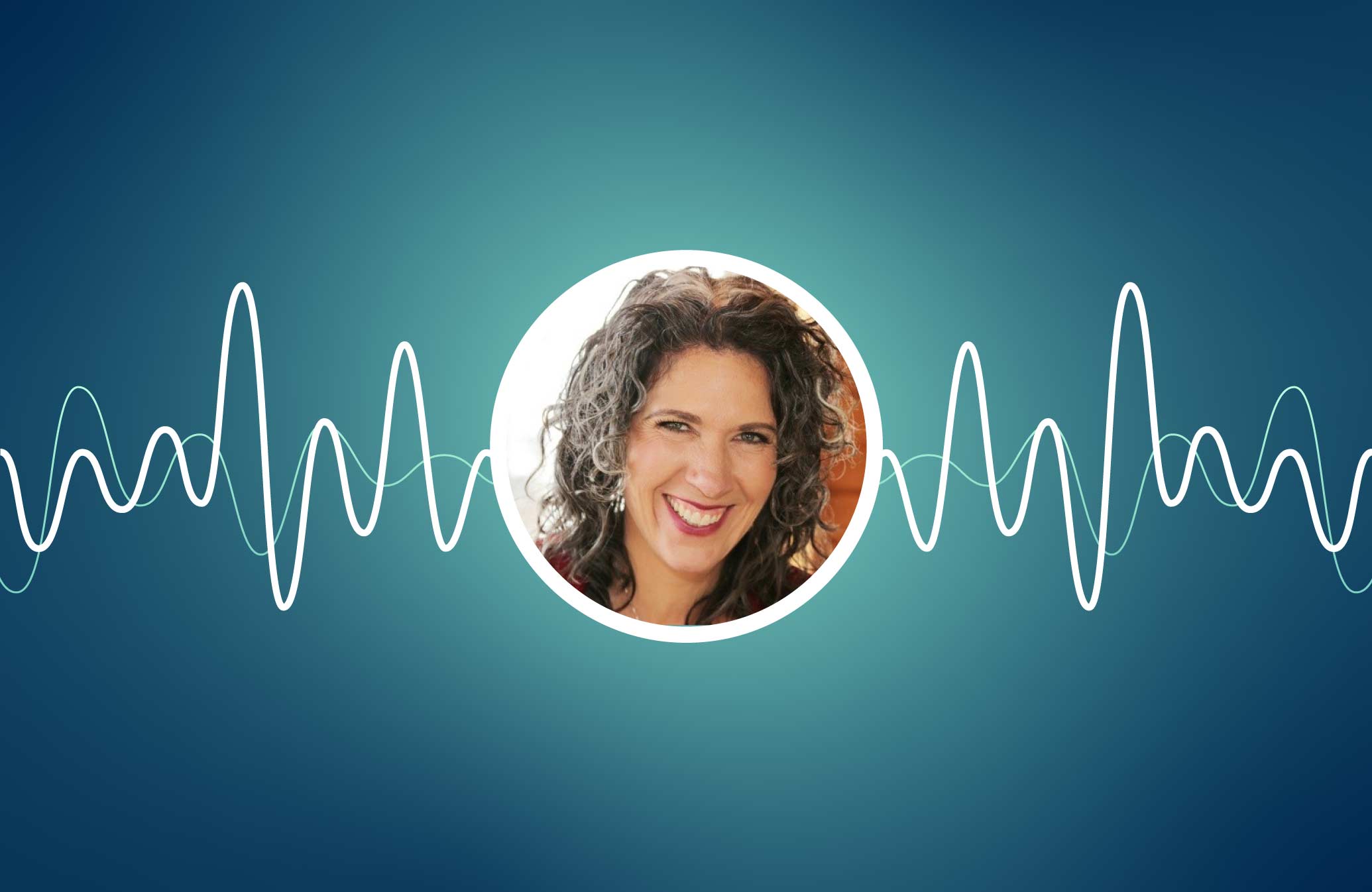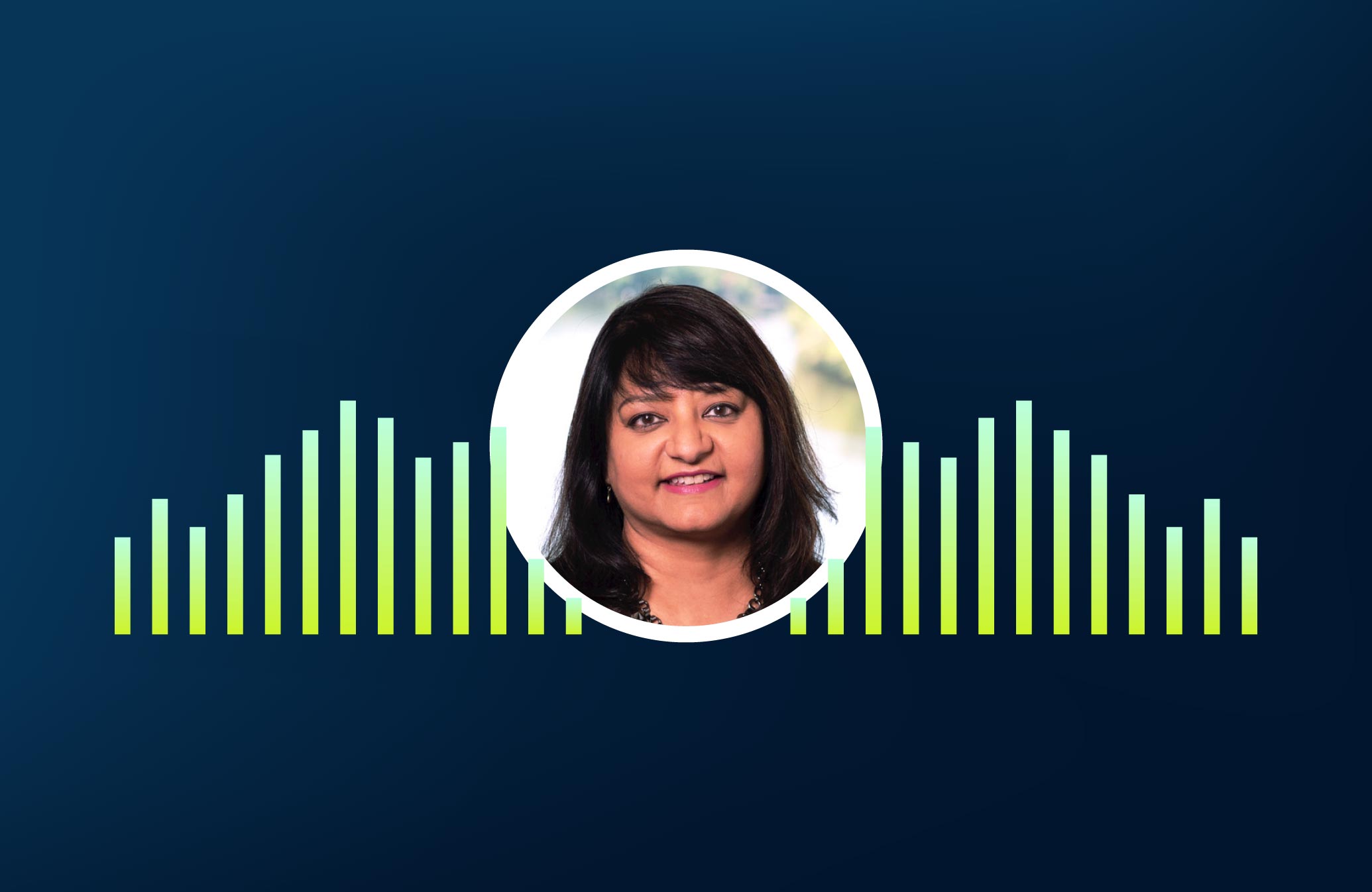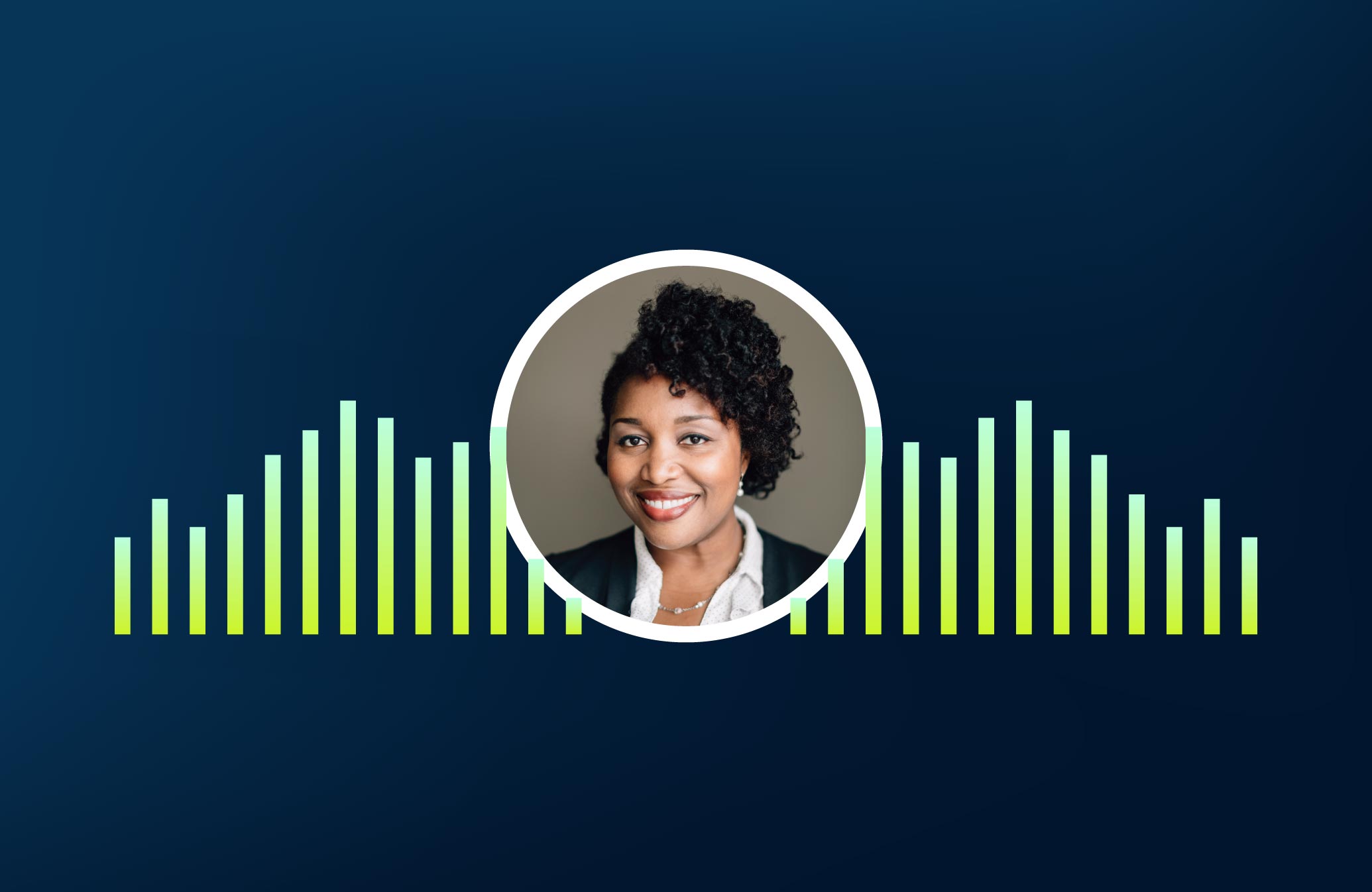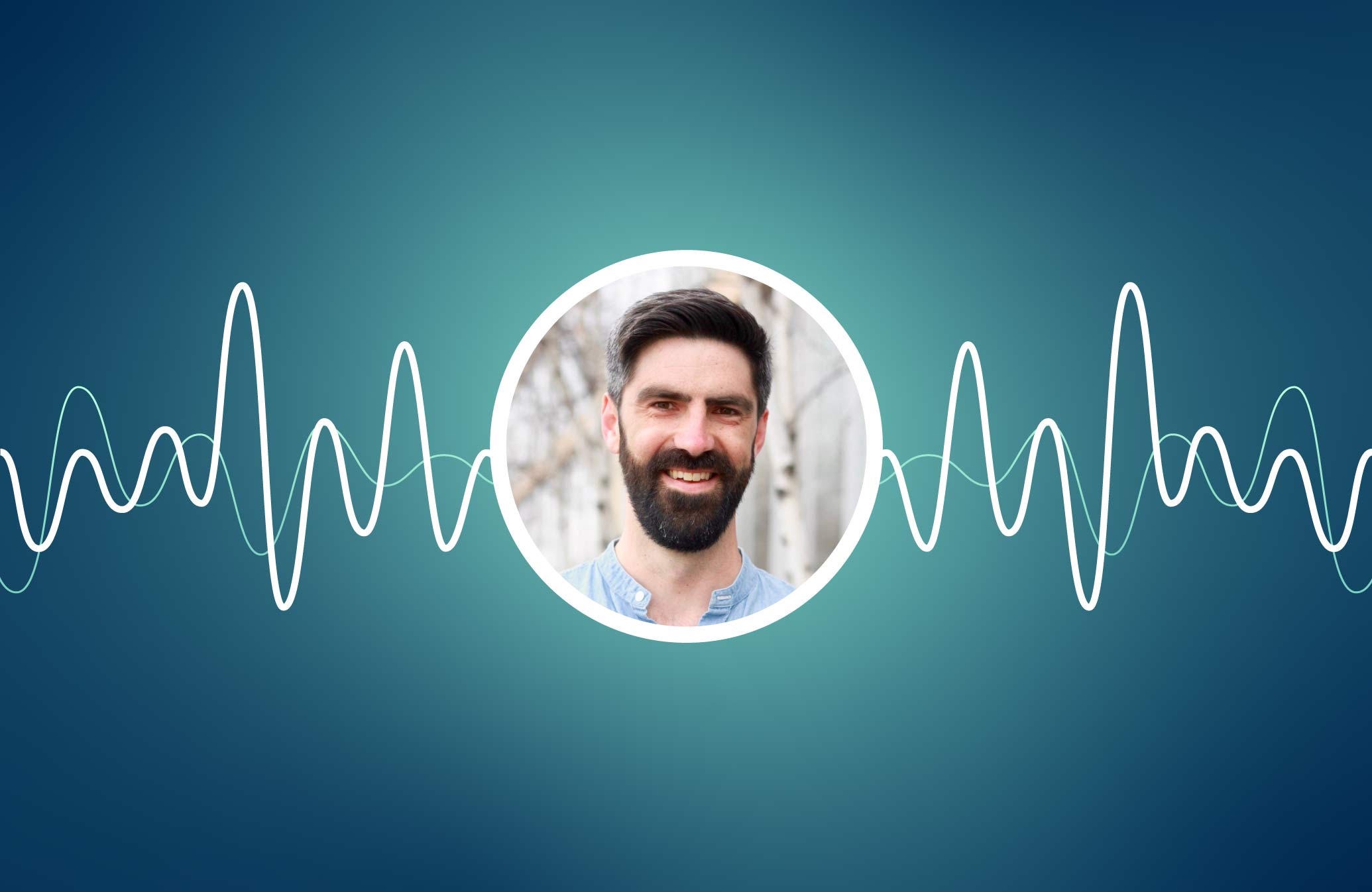Listen Now
Episode Transcript
Announcer [00:00:00] Welcome to RadioRev, podcasting from the heart of healthcare in Minneapolis, Minnesota. This is the podcast for change makers looking to do more than just health engagement. It’s about getting people to take action and do things that actually improve their health. It’s a radical idea, right? So we’re talking with the leaders, innovators, movers, and shakers who are bringing new ideas, inspiring others, and leading the way.
Jenn [00:00:26] Welcome to another episode of RadioRev. I’m Jenn Dellwo. Today on the show, we have Jacquelyn Fletcher. She’s the founder of Heartwood Healing, the Heartwood Sanctuary, and the creator of the Heartwood Self-Mastery programs. She’s a motivational speaker, the award-winning author of 14 books, and the co-founder and host of The Healing Words television show administered by the Lavins Center for Humanities in Medicine at Mayo Clinic. Jacquelyn has trained and coached thousands of people at organizations including Mayo Clinic, UnitedHealth Group, Optum Health, Weight Watchers, and Senior Care Communities, and has been a mindfulness practitioner for 20 years. We’re excited to have her on the show today as we talk about inspiring women in healthcare.
Jacquelyn [00:01:05] Hi, Jenn.
Jenn [00:01:07] Hey. How’s it going?
Jacquelyn [00:01:09] Very well. I am loving this weather so much. Oh, I hope you can get outside. It’s just gorgeous.
Jenn [00:01:15] Yeah, it really is. Well, thank you so much for taking the time to talk with us.
Jacquelyn [00:01:19] Absolutely.
Jenn [00:01:20] So, Jackie, the toughest question of the day is what’s your favorite ’80s song?
Jacquelyn [00:01:26] OK. I have to tell you, I sweat about this a little bit. This one was harsh! And the one that I finally came up with…I was kind of going back through my head about what it was like to live through the ’80s as a kid. And Thomas Dolby’s “She Blinded Me with Science” is one of my very favorite ’80s songs because it was the very first MTV video I ever saw. Awesome. And I was probably 10 years old or something like that at the time when it came out, and it told this really cool story. And so storytelling gets me every time. So I think that’s my favorite today. That’s the one I’m gonna say. {music plays}
Jenn [00:02:18] I love it. It does change on the daily. I know the feeling.
Jacquelyn [00:02:22] It does. Absolutely.
Jenn [00:02:25] All right. So what do you feel is the number one pressing issue in healthcare today? Some people think it’s affordability or behavioral health. If you could wave a magic wand and fix one thing, what would it be?
Jacquelyn [00:02:38] So my feeling about this is that the people are the number one pressing issue in healthcare today. And what I mean by that is both clinicians and patients or members are struggling with behavioral health, mental health, etc. I really see in the work that I do in healthcare that the people themselves are struggling. And that, to me is the biggest issue. The healthcare industry itself has gotten so complex and complicated and regulated that it’s harder and harder for people to connect with their caregivers in meaningful ways. And of course, we need structure. We need regulations. But what we see at Heartwood Healing is clinicians who are burned out and leaving the profession because it’s not what they thought it would be. And we see patients who don’t trust their caregivers or the institutions they’re working for. And this double whammy of both a complicated system and struggling humans is creating a tornado. And so this side of healthcare is really the one that I see the most, which is the clinicians who are struggling with the complexity of delivering healthcare. And so with the Heartwood Self-Mastery program, we work with advance-practice clinicians, physicians of all kinds, therapists, and we’re really working to find ways to bring more joy into their work and lives. And what’s so interesting about this is that if I could wave a magic wand for a second, I would go all science fiction like the Thomas Dolby song I love from the ’80s, and I would create technology that would automatically dictate the notes the clinicians have to take from every patient visit and put them directly from their minds into the computer. I would go all science fiction on you. That would be an amazing superpower. Wouldn’t that be cool?
Jenn [00:04:29] Yes.
Jacquelyn [00:04:30] And then the second part of that is the second part of my science fiction novel, which is during patient visits, I would put the patient and the clinician in this really cool bubble that would transport them to some really awesome, relaxing place in nature that they love. Maybe they could each see something different. And then I’d let them focus only on the present moment that they’re in, because this bubble is also a time machine. So they can really pay attention to one another and make the human connection for as long as they needed to and wanted to, to achieve the goal around the healthcare moment that they’re having. That’s what I would say. I think the biggest, most pressing issue in healthcare today is human connection. And it’s humans. And so we’re solving problems in ways with data and technology that is awesome. And we cannot ever forget that these are human beings.
Jenn [00:05:28] Right. Absolutely. I love that. So you mentioned Heartwood Healing. Can you tell us a little bit more about the work you’re currently doing?
Jacquelyn [00:05:36] Yeah, absolutely. At Heartwood Healing we do what’s called the Heartwood Self-Mastery program, and so we work with healthcare organizations to help their clinicians around resiliency and well-being. We help them connect to their inner core of strength and resilience. And we do that through going back to some ancient practices which humans have known make us feel better for a really, really long time. So we do lots of practices, self-mastery practices, that come from a variety of healing modalities. We look at mindfulness. We look at resilience practices like gratitude and things like that. We look at movement. We look at connection and human connection. And then we really look at, OK, these are ancient practices that we know that humans need and want. And we’ve got all these really cool ways to look at what the evidence says about these practices. And what researchers are showing again and again is that these practices are as good as many of the things that medicine provides us in providing relief. And so that’s the kind of work that we do. We train clinicians. And it is so gratifying to see people who come in so buttoned up and resistant to doing practices that people think are really soft practices for us, for instance, or not for them, and looking for ways to create connection to mindfulness practices that people would normally not think of as mindfulness practices, that really have a super-big impact on their lives and in ways that don’t disrupt or make already stressed people even more stressed out trying to do them. And so that’s the work that we do. And it’s really fun and exciting and so cool to see people really light up.
Jenn [00:07:28] Absolutely. What part do you find most exciting?
Jacquelyn [00:07:34] I would say what I find most exciting is seeing people who come in, having trained in a system that relies on clinicians to be really buttoned up. Clinicians, I often hear from physicians, that they can’t take care of themselves because they were trained in medical school in exactly the opposite. They’re supposed to button up their hearts. They are not supposed to bring out their feelings. They’re not supposed to do that kind of work with themselves. And so they end up against a wall in a crisis of some kind. And they don’t have the coping skills to deal with some of the really challenging parts of human life that happen to all of us. And when you’re in a system that is already very challenging, and you are living with chronic stress on a day-to-day basis, when something happens to tip that over, if something happens at home, for instance, and you’re already living a very intense life at work, it just brings people to their knees. And so it’s really beautiful to see as people who come in resistant saying, “This stuff never works for me. I don’t want to sit on a pillow and meditate, and what are you gonna teach me with this? Isn’t this just a waste of my time? I don’t want to be here.” And then after the course of the program, by the end, having people say, “OK, I’m really sorry. Actually, that was the most important part of the program.” The important thing that we learned in this process was reconnecting back to the human elements of that integrated self of body, mind, spirit, and emotion, which can happen on a yoga mat. But it can also happen in so many other ways that most people are already doing. They’re just not doing them mindfully or by paying attention. So that’s super exciting to me, to see people really popping open to themselves, and understanding that they can live these fully nourished, lit-up lives. And that when they do, when they go into a patient room and are lit up and nourished and magnetic, it actually has a real result on patient care, on that patient and patient outcomes and patient safety, etc. So it is super exciting to see people really putting into practice these ancient and modern, proven-with-evidence techniques that we know work.
Jenn [00:10:02] That’s so awesome. So, Jackie, what does innovation in healthcare mean to you?
Jacquelyn [00:10:10] So innovation, what it means to me—so let me let me just say this first: Healthcare helps us deal with our most tender areas and moments. That is what healthcare is, right? Whether we’re struggling with chronic illness, we’ve just had a baby, we’re on our deathbed. These are tender moments, whether we’re struggling with weight, and we’re trying to take it off. So this intersection, this business itself is humans at their most vulnerable. And so to me, what innovation in healthcare means is that we put human heart, spirit, emotions back into healthcare. And healthcare is so much more than a business. And I know that it is a business and it must be a business, but it is also a business that intersects with people where they’re most vulnerable. But I can tell you, I’ve been in many, many meetings in healthcare and feelings and emotions are not something that rise to the top as something that’s in healthcare. And so to me, that innovation means we work to create a resilient system, not just resilient people, but a resilient system. And so I love the work of Dr. Kathleen Allen, who uses nature as a metaphor for leadership and organizations. And she and I were talking recently about resilient organizations. Resilient organizations are living systems. They’re made up of people, like nature. They’re living things, living, breathing things. They’re not just data and dollars. And in nature, resilient systems are willing to invest in the future. They aren’t stuck in rigid thinking. They’re not afraid to burn down the forest from time to time to see what new things can grow. But forest fires scare human beings because we get really, really, really attached to how things are. And it makes it really hard to see a new path forward when we’re so attached. And fear can come up, of course, if we imagine a forest fire. It really creates fear. So innovation in healthcare to me means finding ways to do controlled burns of the forest so that we can co-create with patients and clinicians the systems, the living systems that will help people connect with each other in the most human ways possible. And so that’s really what it means to me.
Jenn [00:12:36] I love that. That’s such a great analogy, too.
Jacquelyn [00:12:39] Yeah. Kathleen’s work is just gorgeous. And really thinking about an organization, an institution, a healthcare institution, as a living thing, because it is. It is a living thing, just like a forest. So it’s really useful to think in those terms. And I think her work is just really groundbreaking. So I love to introduce people to her work.
Jenn [00:13:01] Yeah. That’s great. So switching gears a little bit. There are a lot of things that have been written about the lack of women in leadership roles, particularly in the C-suite in healthcare. How do you feel healthcare as an industry is doing in terms of diversity at the executive level?
Jacquelyn [00:13:19] Yeah, that’s a great question. You know, I think it’s getting better and better every year, as are many areas, and we’ve got a long way to go. In nature—I’m going to keep returning to this—it’s heavy on my mind right now, nature diversity is what creates resilience. And the more diverse a system is, a living system, the more resources it has. For instance, the forest floor, the more nutrients, different plants, etc. that grow within the forest are all serving that forest. They’re all providing compost for that forest. And the more diverse it is, the more resilient and healthy it is so that it can withstand all of the things that come through to destroy forests, so the fires, the pests, the weather, etc. There are these built-in systems that come to us through diversity that help enable the forest to continue on in some way. And so in my mind, the more diverse the C-suite becomes, the more healthy it’s going to become, the more that that living system of the organization is going to resemble something that can shift and be adaptable and move and grow depending on what people need. And so I think that without women, without gender diversity, racial diversity, etc. in the C-suite, we are really putting our organizations at risk.
Jenn [00:14:45] Perfect. Individuals are becoming pretty savvy healthcare consumers as more of the costs are being shifted to them. In terms of meeting the need of these new customers, what are healthcare payers and providers doing well that you’re seeing?
Jacquelyn [00:15:03] What I am seeing is more and more transparency, and I think that is the right way to go. When things are not transparent, then people start to not trust. And again, I’m so interested in the human element of all of this. And so to me, what transparency means…we know that humans are deeply concerned about fairness. What that means is if they can’t see something, they don’t know if it’s fair. They don’t know what it is. It creates the sense of insecurity and fear and the sense that they’re out of control, their lack of agency. They don’t have a sense of control over their own lives. And so I would say that the more healthcare payers and providers are being transparent, that’s really a beautiful thing as consumers get more and more educated. And I would say that trend is only going to continue. I just recently heard about an organization that is starting their own line of clinics, and it’s just going to be membership based. I believe they might take some insurance, but they’re just asking people to pay membership. So you pay a monthly membership, and you can go when you’re sick. Isn’t that amazing? I mean, that’s totally disrupting healthcare, and it’s putting the consumer in charge. So they get to say, “This is the type of healthcare I want and need.” And I think we’re going to see more and more and more of that as things are opened up for people to see. And I know that sometimes that can be very scary for the leaders of an organization. But I think in the end that’s what creates trust for people, transparency. So I think that that, watching what healthcare providers and payers are doing around transparency, is really a good trend. And I think that’s only going to grow. And there might be some growing pains along the way. But I think that’s where we’re going.
Jenn [00:17:06] So we’re doing transparency well. What needs to improve?
Jacquelyn [00:17:11] Well, I would say that we just need to continue being even more and more transparent. I mean, it’s just opening up the top of the box even more, because now we have consumers who are used to being able to shop for whatever they want, whenever they want, wherever they want, and knowing what things cost and being able to compare prices. And healthcare, as we know, this trend has been going on for a while, but I think consumers are going to continue to push healthcare in that direction and sort of be ahead of that to be really thinking about how we really think outside the box on this so that we’re partners with the consumers who are getting more and more smart about what they’re paying for and demanding that they know what they’re paying for, where all these costs are going. So, I think that to improve it, we just we continue on the path that has begun.
Jenn [00:18:06] Great. What’s the most exciting advancement you see happening in healthcare today?
Jacquelyn [00:18:14] You know what? This is so interesting. The most exciting advancement is that we are inviting in the return of the ancient things we’ve known all along as humans. And so as we’re looking forward, and we’re driving toward this beautiful beacon of a future, we are remembering that we come from ancient wisdom that we can call on. We come from lines and lines and lines of humans. And so that I’m really so excited to see. I was recently at an event that the National Academy of Medicine put on that was about clinician well-being and resilience. And there was a CEO there of a healthcare system who was saying, “I used to be so resistant to all this stuff about resilience and mindfulness and being grateful. And I thought this was just a bunch of woo-woo stuff that was just not appropriate for healthcare.” And what was really interesting is he said, “And then I started looking at the literature, and I realized that these studies are showing us that mindfulness and gratitude practices, which are ancient, thousands of years old, longer than that, practices that humans have done to make themselves feel better, actually, the research is just as good as anything else we do in medicine.” And so I’m really excited, really excited to see that the advancements of healthcare are taking into consideration the makeup of the human, that we know we need connections and community to other people. We know we need to be present, in the present moment. And we know that we need to be grateful for these moments and feel connected to our joy. So what I think is really exciting is that it’s happening in more and more organizations, that they are introducing programs that are mixing these ancient wisdoms with technology and with ways that help us intersect with those things more often.
Jenn [00:20:13] I love the combination of the ancient wisdom, kind of going back to our roots and technology. I think that’s such a cool balance.
Jacquelyn [00:20:21] Yeah, it’s exciting. It’s really exciting. And that’s what we’ve been talking about, really about innovation. It’s really combining the things that we know make humans their most vital, magnetic selves. And combining that with the advancements we’ve made in technology and in the beautiful things that we can do to work with health, people’s health. And so I love the combination of those things, not leaving behind the fact that we are human at the end of the day.
Jenn [00:20:51] I love that. So totally un-healthcare related, outside of work, tell us the coolest thing you’ve done lately.
Jacquelyn [00:21:00] OK. So this is something that I was terrified to do, so I should say that first. But I have not been camping since I was a little kid. And I grew up in Minnesota, so there’s lots of camping to be done here in Minnesota, and beautiful camping. But I had never been to the Boundary Waters. And the Boundary Waters is this huge wilderness area on the border of Minnesota and Canada. And so I went on a women’s leadership retreat, and I had not camped since I was a kid. I was so scared. I was totally nervous. I didn’t know what to expect. I was like, “I’m not going to be able to sleep. I’m going to be eaten alive by mosquitoes. There’s going to be wildlife that might eat me.” I don’t know. I was terrified. And then where do you go to the bathroom? But this was the coolest experience I have had in a very long time. So we went into the woods. It was a week-long trip. And first of all, you drive into the woods, and there’s this moment where I was watching my phone, and we crossed some invisible barrier as we were going into the forest, and it said no service.
Jenn [00:22:18] That’s a serious place to be, right?
Jacquelyn [00:22:23] There is no service in the Boundary Waters. And going completely off the grid—it was really interesting. And so that experience…we spent a lot of time in the silence of the woods, which you find out are not silent at all. And sitting with nature and using nature as this beautiful metaphor. One of the experiences, the coolest experience I had there, was that we did this exercise where the leaders of the retreat asked us to go sit in the woods. Have a question in mind first that we were really trying to solve as a leader. And go sit in the woods for two hours. I was like, what? I’m going to get twitchy. I don’t know if I can do this. I’ve been practicing mindfulness and meditation techniques for 25 years, and I’m like, “I don’t think I could do two hours of the woods by myself!” But I went and sat in this beautiful spot next to this amazing, pristine lake. I mean, it was the most clear lake I’ve ever seen. And the bluest sky. And these birds, eagles all over the place, and loons floating by. And I sat there for two hours observing nature and really allowing my brain to go to this really right-sided space of “What do I see here? What story, what metaphor do I see here that could help me answer this question?” And then just releasing the question and allowing my brain to kind of just be in a more creative and innovative space. And it was so interesting because then I noticed that there was this…I was sitting on a rock, a really big rock, and there was this crevice in the rock where this little plant had grown, right in the middle of this rock, this barren rock. And I just remember thinking, “Oh, my gosh, life will grow even under the most challenging circumstances.” And I remember looking at that plant and also sitting up high enough, because I had the eagle view of it, to be able to see that just beyond where this plant had planted itself and was growing, there was this vast access to water and this huge lake just right there that was feeding this plant. And so the metaphor of that that I came out of the woods with that day was, what are the things that I am doing as a leader, or the things that I’m so focused on that I’m struggling with that are so hard, but I have just enough energy that I’m getting forward motion that I feel like, it’s just this small trickle. But look at that—the water, the full source of the water—is right there. And I just have to trust that I keep going. I keep growing. And we’re gonna hit it. And so, I think about that a lot. I think that’s the coolest thing I’ve done lately, is to really use nature as a tool for developing my creativity so I can be even more innovative.
Jenn [00:25:31] That sounds like such a great experience.
Jacquelyn [00:25:34] Yeah, it was awesome and terrifying and annoying, and I didn’t sleep.
Jenn [00:25:40] So the real question is, would you go again?
Jacquelyn [00:25:43] I would. It was profound. I would do it again. It was absolutely profound. Yes.
Announcer [00:25:49] Thanks for joining us for the RadioRev podcast brought to you by Icario. If you found today’s conversation as informative and energizing as we did, please take a moment and subscribe to the podcast. As always, we invite you to learn more about us and check out all of our content at dev-revel-health.pantheonsite.io/RadioRev.
Inside the Episode
In this episode we talk with Jacquelyn Fletcher, the founder of Heartwood Healing, The Heartwood Sanctuary, and the creator of the Heartwood Self-Mastery programs. She’s a motivational speaker; the award-winning author of 14 books; and the co-founder and host of the Healing Words television show administered by the Lavins Center for Humanities in Medicine at Mayo Clinic.
Jacquelyn has trained and coached thousands of people at organizations including Mayo Clinic, UnitedHealth Group, OptumHealth, Weight Watchers, and Senior Care Communities. Today we’re talking about what inspires her, how to define innovation in healthcare, and the most exciting thing she’s worked on lately. Discussion points include:
- The most pressing issues in healthcare today
- Diversity in healthcare leadership
- The coolest thing Jacquelyn has done lately
To keep the conversation with Jacquelyn going, connect with her on LinkedIn.
“The most pressing issue in healthcare today is human connection. We’re solving problems with data and technology, but we cannot ever forget that these are human beings.”
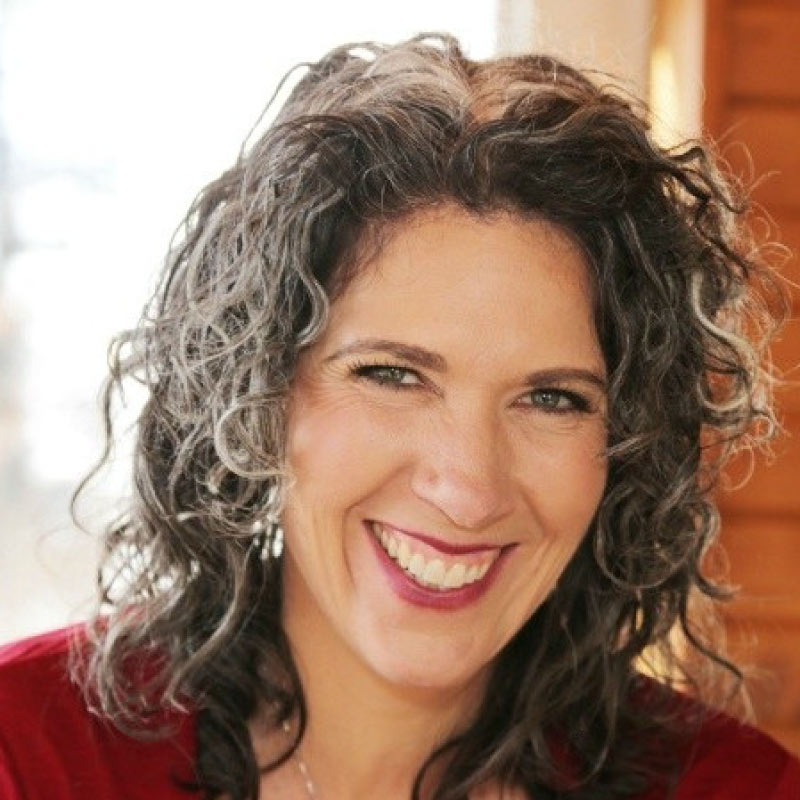
Jacquelyn Fletcher
Founder at Heartwood Healing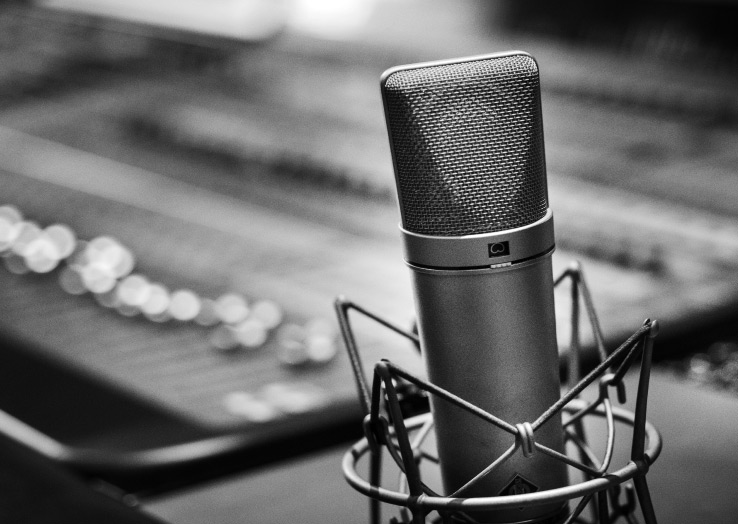
Can’t get enough of RadioRev?
Check out all of our episodes to stay up-to-date on the latest in healthcare innovation, social determinants, and health action.

